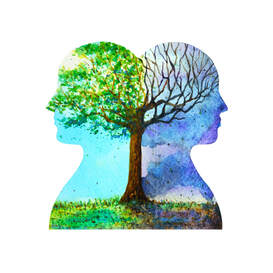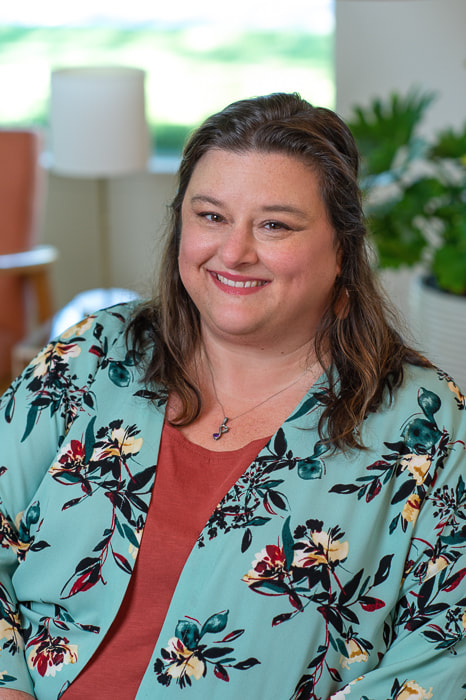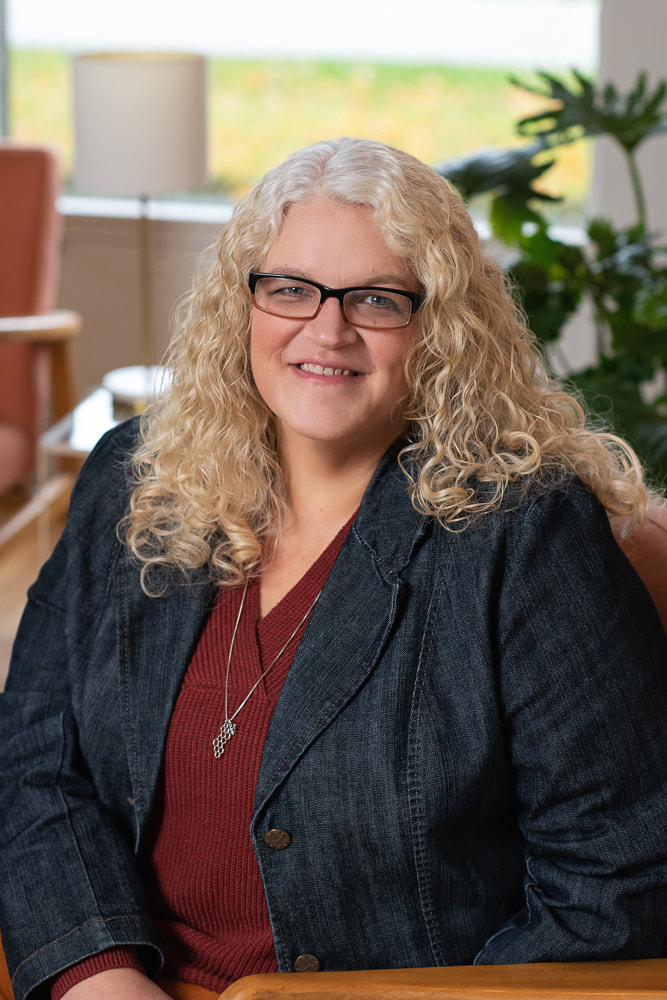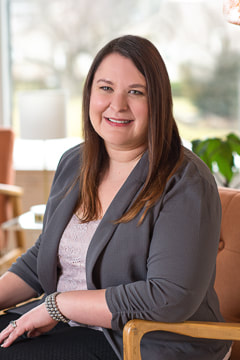Bipolar Disorder
|
If you are interested in counseling for Bipolar Disorder, call OakHeart at 630-570-0050 or 779-201-6440 or email us at [email protected]. We have counselors, psychologists, and social workers available to help you at one of our locations in North Aurora, IL, Sycamore, IL, and/or via Telehealth Online Therapy Services serving Kane County, DeKalb County, Dupage County, and beyond.
If you are interested in medication management for bipolar disorder, please call 630-273-7115. What is Bipolar Disorder?Bipolar disorders, formerly known as manic depressive disorders, are characterized by extreme shifts in mood that are episodic. Symptoms can include an extremely elevated or irritable mood called mania. They may also often include episodes of depression. A person with bipolar disorder may have long periods of time without experiencing these mood extremes. People with bipolar disorder may have trouble managing everyday tasks of daily living, school, work, and/or social or family relationships during episodes of mania, hypo-mania, and/or depression.
Mania describes a mood episode characterized by a person feeling abnormally excited, confident and/or irritable for at least one week and present most of the day, nearly every day. During that elevated or irritable mood the person may also experience grandiosity, decreased need for sleep, more talkative or speaking rapidly, racing thoughts, increase in goal directed activities or trouble sitting still, and excessive involvement in activities that have a high potential for painful consequences (spending sprees, sexual encounters, theft, investments, gambling, etc). Hypo-mania symptoms are similar, but less intense in functional impairments, although the functional change is still present and noticeable by others. Depression describes a mood episode characterized by a person feeling abnormally down and sad for at least two weeks and present most of the day, nearly every day. During the depressed mood the person may also experience diminished interest or pleasure in nearly all activities, weight loss/gain or significant changes in appetite, sleep disturbances (sleeping too much or too little), restlessness or feeling slowed down, excessive fatigue or loss of energy, feelings of worthlessness or excessive guilt, diminished ability to concentrate or make a decision, and thoughts of death or suicide. |
For a diagnosis of Bipolar I Disorder, it is necessary to meet the criteria for a manic episode. The manic episode may have been preceded by and may be followed by hypo-manic and major depressive episodes. It is true that only one manic episode in a life time is needed to obtain a diagnosis of bipolar I disorder. For a diagnosis of Bipolar II Disorder, it is necessary to meet the criteria for a current or past hypo-manic episode and the criteria for a current or past major depressive disorder without ever experiencing a manic episode. Lastly, for a diagnosis of Cyclothymic Disorder a person must not meet the full criteria of any mood episode, but instead may experience more chronic and frequent mood shifts that are less intense but more frequent for at least two years without going longer than 2 months without mood shifts. These shifts do still cause functional impairments in daily living, they just don't meet full criteria for an episode.
Most people with bipolar disorder spend more time in depressive episodes than manic or hypo-manic episodes.
Most people with bipolar disorder spend more time in depressive episodes than manic or hypo-manic episodes.
How Do You Treat Bipolar Disorder?
There is no cure for bipolar disorder. It is a chronic mental health condition that is much more common than most realize. The good news is that people with bipolar disorder can learn to manage their symptoms, similarly to someone with diabetes or high blood pressure, and function well in their day to day lives. First-line treatment of Bipolar Disorder is Cognitive Behavioral Therapy (CBT) and medication management combined.
CBT for bipolar disorders involve psycho-education, identifying early warning signs and implementing behaviors to counteract the mood episode, cognitive restructuring, and reduction in vulnerabilities to mood symptoms. Your therapist may incorporate components of mindfulness-based cognitive behavioral approaches as well, such as Acceptance and Commitment Therapy (ACT) and Dialectical Behavioral Therapy (DBT) if indicated.
Learning to live a healthy life with bipolar disorder may seem daunting, but your therapist is there to guide you every step of the way. We feel strongly that our therapists at OakHeart can help guide you in the process.
CBT for bipolar disorders involve psycho-education, identifying early warning signs and implementing behaviors to counteract the mood episode, cognitive restructuring, and reduction in vulnerabilities to mood symptoms. Your therapist may incorporate components of mindfulness-based cognitive behavioral approaches as well, such as Acceptance and Commitment Therapy (ACT) and Dialectical Behavioral Therapy (DBT) if indicated.
Learning to live a healthy life with bipolar disorder may seem daunting, but your therapist is there to guide you every step of the way. We feel strongly that our therapists at OakHeart can help guide you in the process.
OakHeart Bipolar Disorder Counselors, Psychologists, and Social Workers
|
|
|
|
|
|
|
|
|
Bipolar Related Blogs:
|
Correct diagnosis of bipolar disorder is essential for developing an appropriate treatment plan. Proper diagnosis involves doing a thorough clinical interview which is likely to include various assessments and coordination of care with other providers. Bipolar I disorder is diagnosed when an individual meets criteria for at least one manic episode. When an individual meets criteria for at least one hypomanic episode and one depressive episode, bipolar II is diagnosed. More information on diagnosing bipolar disorder can be found in my Monday Facebook blog post. Evidence-based treatment for bipolar disorder involves a combination of medication and Cognitive-Behavioral Therapy. Other effective treatment interventions may include ACT and DBT strategies...(to read more, click on the link above).
|











